New Green Growth Engine with Futuristic Tech
CEO Cho says railways are a representative environmentally-friendly, green transportation means
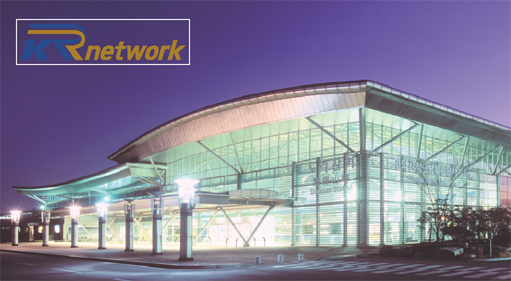
Korea Rail Network Authority (KR) Chairman and CEO Cho Hyun-yong said, "We're putting our heart and soul into establishing railways as a new growth engine by securing futuristic railway technology."
Cho said, "Korea needs to shift into a new national paradigm of 'low-carbon, green growth' in order to elevate the nation into an advanced, world-class country, and railways are a representative environmentally-friendly, green transportation means."
Advanced countries including those in Europe have been shifting traffic policies toward railway-oriented ones since the late 1990s with a focus on environmentally-friendly, advanced railway technology, recognized as a national growth engine, not just to boost investments in the sector, he said. "The KR is striving to put it in the mind of the people as a primary public entity creating futuristic values via railways," Cho stressed.
In his New Year's message, the KR chairman said, "The new year always starts in winter. Even though we do not sense any living things while looking at a desolate field before us, we learn from long-standing experience that winds of flowers blow and green sprouts come out before long." He added, "At the starting point of 2009, the situation unfolding before us is not easy. The exacerbation of the economic downturn is forcing our society to undergo changes. Even though it is not easy to break the mold, we can translate a crisis into an opportunity if we proactively accept changes and cope with them wisely."
"Korea could not escape from the cold wave, touched off by the global financial crisis as firms go belly-up and many people suffer from difficulties. However, if we walk in a steady pace like an ox in the Year of the Ox, a symbol of diligence, sincerity and loyalty according to the Chinese zodiac, it will yield a good harvest in the end," he said.
First, Chairman Cho said, the KR will step up its capability and expertise as an institution specializing in railways to meet the public's expectations and demands.
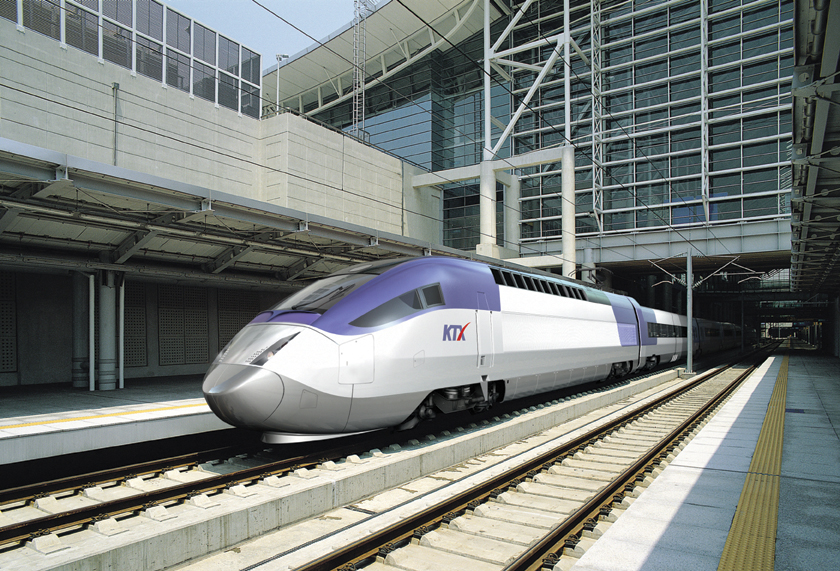
"We will take the lead as an institution executing the government's budget in turning around the slumping economy and creating jobs," he said. He added that the KR plans to front-load 4 trillion won in the first half, accounting for 67 percent of the total expenditure set aside for financing construction projects during 2009, and the measure is forecast to have effects of creating approximately 110,000 jobs and production spill-over effects worth about 12 trillion won, which are expected to help the nation overcome the economic crisis and lower the unemployment rate.
The KR is striving to make itself into a reliable public entity beloved by the people by enhancing management efficiency and strengthening its capability, Cho said. Late last year, the KR reorganized its operations in order to achieve its goals, and the headquarters, which is getting slimmer, will support the staff in the field and ensure field-oriented management so that efficiency can be enhanced. He added that this year will be the first year for laying a foundation for ensuring field-oriented management, efforts to cut down on spending will be made in the field and the KR will do its utmost to solve public complaints and grievances immediately.
KR Front-Loads 1/3 of Budget for Projects in Jan.
The Korea Rail Network Authority (KR) has joined the government's effort to create more jobs to overcome the slumping economy by front-loading one-third of its total budget allocated for implementing projects during this year in January alone.
KR, responsible for the construction of such railways as Korea's high-speed KTX lines, said on Feb. 2 that it advanced the spending of 2.103 trillion won, equivalent to 34.5 percent of its total project expenditures set aside for the year earlier than scheduled.
The early spending breaks down to 174.6 billion won in the balance carried over from the last account, 907.8 billion won from the government budget and 1.020 trillion won in the issuance of corporate bonds.
The money KR raised on its own included 870 billion won from the issuance of its corporate bonds, 113.9 billion won in revenues stemming from the implementation of commissioned projects and 36.5 billion won in income earned from its assets.
A KR official said, "We've almost achieved the first quarter spending target by releasing 2.176 trillion won out of the 6.099 trillion won set aside for implementing projects during this year."
The KR has advanced the signing of contracts to implement projects since late last year in order to create jobs amid the economic uncertainties. This policy has resulted in inking 499 contracts worth 3.193 billion won ¡ª 235 projects worth 3.028 trillion won and 264 purchase and service contracts worth 164.4 billion won, the official said.
The corporation plans to sign more contracts on the remaining sections of the ongoing projects in late February and March.The special corps for overseeing the early execution of budgetary spending, headed by the KR chairman, makes daily checks on the status of early execution including whether the executive fund has flowed into the hands of subcontractors.
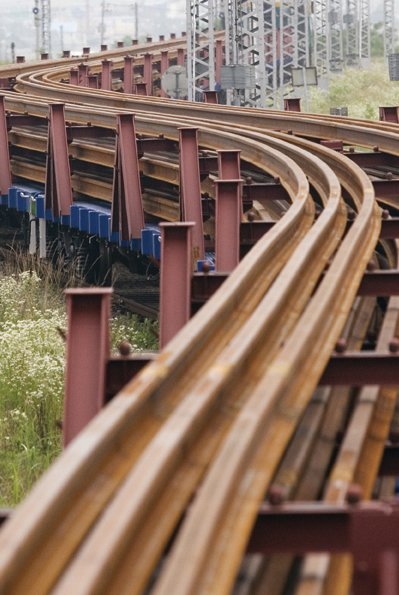
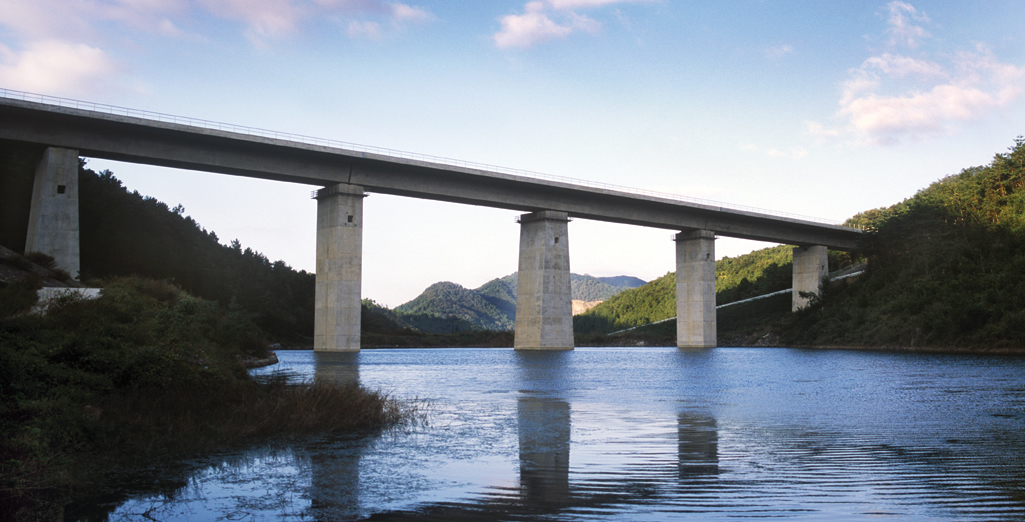
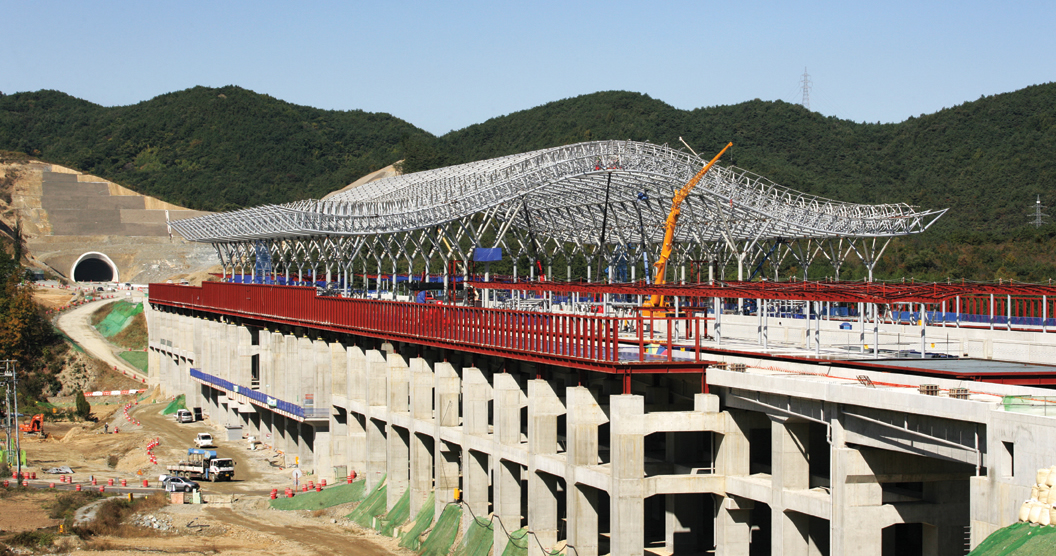
Korea, China Step Up Technology Exchanges
Railway Delegations from both sides assemble for their second meeting
About 60 officials from the Korea Rail Network Authority (KR) and its business partners held a meeting to promote technology exchanges with a 12-member Chinese railway delegation at the Hotel Rivera Yuseong on Dec. 17.
The meeting was the second since November 2007, when both sides got together for their first meeting, which served as an opportunity to begin high-speed railway technology exchanges following Korea's introduction of the testing and start-up operations of the high-speed railway KTX.
Korean and Chinese delegates had in-depth discussions on seven topics ¡ª civil engineering, bridges, tracks, inspection and measurement, signals, communications and system integration related to the construction of China's high-speed railways. The latest meeting not only contributed to the development of the railway industries of both countries, but also enhanced Korean railway experts's understanding of the Chinese railway construction industry, which has emerged as a lucrative market.
In 2005, the KR successfully offered its inspection service on the 12.6 km pilot project of the 150 km line connecting Chongqing. The corporation supervised the 152.8 km section of the first Wuhan-Guangzhou line project and it is now carrying out engineering service for the 904 km Harbin-Dalian high-speed railway project. nw
Dorasan Station, a railroad on the Gyeongui Line, has recently been reconnected between South and North Korea after decades of hiatus
KTX, Korea's high-speed railway, has established itself as the nation's mainstay transportation means.
(clockwise) Long jointless rails; the Daegok Overpass of the Gyeongbu (Seoul-Busan) KTX Line; and the newly-built Gyeongju KTX station.
3Fl, 292-47, Shindang 6-dong, Chung-gu, Seoul, Korea 100-456
Tel : 82-2-2235-6114 / Fax : 82-2-2235-0799